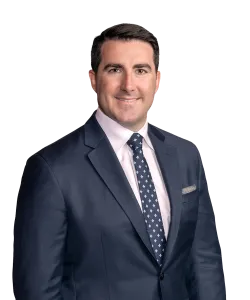Pfizer Settles Its Subsidiary’s Kickback Allegations for Nearly $60 Million
Headlines that Matter for Companies and Executives in Regulated Industries
Pfizer Settles Its Subsidiary’s Kickback Allegations for Nearly $60 Million
Pfizer Inc. agreed to pay over $59,746,277 to resolve allegations that its wholly owned subsidiary, Biohaven Pharmaceutical Holding Company Ltd., violated the Anti-Kickback Statute (AKS) and False Claims Act (FCA).
The government alleged that from March 2020 to September 2022, Biohaven paid improper remuneration to health care providers through speaker programs. These are company-sponsored events where a health care provider makes a speech or presentation to other providers about a drug on behalf of the company. Biohaven developed, distributed, marketed, and sold the drug Nurtec ODT, a quick-dissolve tablet used to treat and prevent migraines.
Biohaven allegedly selected health care providers to participate as speakers with the intent to induce those providers to prescribe Nurtec. These selected speakers received remuneration in the form of speaker honoraria and expensive meals at high end restaurants. The government also alleged that certain attendees attended multiple speaker programs on the same topics, and that individuals, such as a speaker’s spouse, family, or friends, attended these speaker programs. In all, the government alleged that these speaker programs had limited educational value and only served to improperly promote the use of Nurtec.
The government investigation initiated because of whistleblower allegations made by a former sales representative, Patricia Frattasio. Under the qui tam provisions of the FCA, whistleblowers can initiate actions on of behalf of the United States and receive a portion of the recovery.
Pfizer’s settlement demonstrates the importance of mergers and acquisitions diligence in the health care industry. Notably, Pfizer completed its acquisition of Biohaven in October 2022 and promptly terminated the speaker programs. Such remedial action may factor into resolving the government’s investigation with favorable terms.
The US Department of Justice’s press release is available here.
Sackler Family Agrees to End Control of Purdue Pharma and to Pay $7.4 Billion for Role in Opioid Epidemic
A bipartisan coalition of 15 states announced a $7.4 billion settlement in principle with the Sackler family and their company, Purdue Pharma Inc.
According to the Office of the New York State Attorney General (NY AG), as part of the settlement, the Sacklers agreed to end their control of the company and their ability to sell opioids in the United States. Purdue invented, manufactured, and aggressively marketed opioid products, which the NY AG states contributed to the increase in addiction and overdose deaths across the United States.
The Sackler family will pay $6.5 billion of the settlement over the course of 15 years, including $1.5 billion upon approval of the settlement. Purdue Pharma will be responsible for paying $900 million of the settlement. The funds will go directly to communities across the country to support opioid addiction treatment, prevention, and recovery programs.
New York, California, Colorado, Delaware, Florida, Illinois, Massachusetts, Oregon, Pennsylvania, Tennessee, Texas, Connecticut, Vermont, Virginia, and West Virginia led negotiations with the Sackler family. This coalition will seek approval from the remaining states and municipalities that have sued the Sackler family and Purdue Pharma before seeking approval from the bankruptcy and state courts overseeing this suit.
The NY AG’s press release is available here.
Fourth Circuit Affirms Broad Interpretation of AKS in Co-Pay Assistance Case
On January 23, the Fourth Circuit ruled against Pharmaceutical Coalition for Patient Access (PCPA), a charity backed by pharmaceutical manufacturers, when it affirmed an advisory opinion from the Office of the Inspector General (OIG) for the US Department of Health and Human Services (HHS). The advisory opinion, AO 22-19, opined that PCPA’s proposed program that would help Medicare Part D patients cover the costs of co-pays for cancer drugs would constitute a quid pro quo and violate the AKS.
The Fourth Circuit held that PCPA’s proposed program would meet the statutory meaning of “inducement” and “remuneration” under the AKS. PCPA argued that because it acted as a charity, it provided a societal good and could not “induce” unlawful behavior because the AKS does not criminalize positive behavior. PCPA also argued that it did not pay any “remuneration” under the AKS by paying drug co-pays because those payments were not for a corrupt purpose. The Fourth Circuit disagreed, finding that its proposed program to offer subsidies to support the purchase of federally reimbursable health care goods would influence patients towards purchasing the drugs of the companies that backed PCPA.
PCPA also argued that there would be no quid pro quo under its charitable program because it would act as the intermediary between the patients utilizing the assistance program and the pharmaceutical manufacturers. In other words, PCPA’s copay assistance program would not affect the medical decision-making and counsel between prescriber and patient because it was “agnostic” about the choice of drug and would help any needy patient. But the Fourth Circuit stated that the payments — the pharmaceuticals’ contributions to PCPA — did not need to be tied to specific official acts if the payments were made with the intent to secure a specific type of specific act, i.e., a patient being able to fill his prescription for their drug.
In all, the decision does not disturb HHS-OIG’s stance that chartable organization’s subsidies for copays for government health care recipients could constitute a violation of the AKS and FCA.
The appeal is Pharmaceutical Coalition for Patient Access v. United States of America, et al., Case Number 24-1230, (4th Cir. Jan. 23, 2025).
North Carolina Drug Testing Lab Settles FCA Allegations for $850,000
Substance Abuse Treatment Labs and its owner, Paul Fribush, agreed to pay $850,000 to resolve allegations it violated the FCA by billing for medically unnecessary urine drug screening tests.
According to the government, from January 2018 to January 2022, Substance Abuse Treatment Labs submitted false claims for the highest level of urine drug testing to North Carolina’s Medicaid program. According to Acting US Attorney for the Middle District of Carolina Randall Galyon, the lab submitted the allegedly false claims “despite clear signs that the tests were not medically necessary.”
The US Attorney’s Office for the Middle District of North Carolina’s press release is available here.
Former New Jersey Senator Bob Menendez Sentenced to 11 Years in Prison
On January 29, US District Court Judge Sidney Stein of the Southern District of New York sentenced former New Jersey Senator Bob Menendez to 11 years in prison. Judge Stein further ordered that Sen. Menendez forfeit all proceeds of his crime but did not impose a fine.
Last summer, after a nine-week-long trial, a jury found Sen. Menendez guilty on all 16 counts he faced, including extortion, obstruction of justice, conspiracy, acting as a foreign agent, honest services fraud, and bribery, among others. Sen. Menendez is the first US Senator to be convicted of acting as a foreign agent.
At trial, the government presented evidence that Sen. Menendez accepted hundreds of thousands of dollars of bribes (including in the form of gold bars and cash) in exchange for pressuring a US Department of Agriculture senior official, benefitting the government of Egypt and government of Qatar, and interfering in a federal criminal prosecution brought by the US Attorney’s Office for the District of New Jersey, among other things.
Judge Stein remarked that the evidence at trial was “overwhelming” and deemed Sen. Menendez to be a “corrupt politician.” He speculated as to what led Sen. Menendez to engage in such conduct — suggesting greed and hubris — and ultimately found “the public cannot be led to the belief that [Menendez] can get away with bribery, fraud and betrayal.”
Sen. Menendez, who use to chair the Senate Foreign Relations Committee, resigned from Congress in August after the guilty verdict. He has maintained his innocence and called the case a “political witch hunt” after his sentencing. He plans to appeal his conviction to the Second Circuit and his counsel requested he remain out on bond pending appeal, which Judge Stein granted.
The US Attorney’s Office for the Southern District of New York’s press release is available here.
Contacts
- Related Industries
- Related Practices






